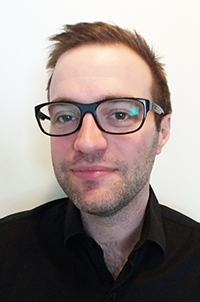The so-called commercial seal hunt as carried out on the Canadian East Coast has for many decades been labelled as cruel, inhumane and unnecessary. As a response to public pressure and campaigns to shut down the hunt, the European Union adopted a regime in 2009 effectively shutting down the EU’s internal market for products stemming from seal products other than indigenous communities. In his doctoral dissertation MA Nikolas Sellheim shows how the regime disregards a science-based approach.
Nikolas Sellheim analyses the drafting process of the EU seal regime and
the narratives applied in it. It becomes clear that from the outset
policy-makers have incorporated anti-sealing narratives into the
political discourse and by and large disregarded a science-based
approach. This resulted in a regime which does not consider animal
welfare, a core element in launching the process in the first place, but
which rather delegitimises non-indigenous hunts per se.
Throughout
the dissertation Sellheim shows how moral claims by the European Union
are argued and which relevance a science-based approach vis-à-vis an
emotional approach has. Analysing the drafting history of the regime
shows that stakeholder consultations did not involve commercial sealing
industry representatives – the core group affected by a trade ban –
while a significant input was generated by animal welfare groups.
"This
emotionally charged environment has created a regime which is difficult
to align with other animal welfare instruments in the EU although this
was successfully argued before the World Trade Organization. At the same
time, this environment has created questions as regards the ultimate
objective of the regime since animal welfare was replaced by emotional
opposition towards the seal hunt in general", Sellheim notes.
Focus on the Newfoundland sealing industry
The
dissertation combines legal analysis with empirical data collected in
Newfoundland, Canada. In the course of the doctoral research an
up-to-date ethnographic account was generated and Nikolas Sellheim was
the first European researcher to ever having conducted participant
observation in the commercial sealing industry – the seal hunt and
processing – in Canada.
The ethnographic data indicates that
within seal hunting and processing communities a cultural and moral
environment has developed that is closely linked to the maritime
resources. Further declining markets for seal products ultimately result
in deteriorating coastal communities and the loss of knowledge on the
sea, its resources and the abundant wildlife.
"Due to the
predetermined stance of EU policy makers matters of culture and
knowledge in the commercial seal hunt were part of the political and
legal discourse. This resulted in a regime which is largely based on
little objectivity and with little consideration for seal hunting
communities", Sellheim argues.
Information on the public examination of the dissertation:
Nikolas
Sellheim's doctoral thesis
Legislating the blind spot. The EU seal
regime and the Newfoundland seal hunt will be publicly examined at the
Faculty of Law on Friday, 20 May at noon, in Lecture hall 2,
Yliopistonkatu 8, Rovaniemi. The opponent will be Doctor Níels
Einarsson, Director of the Stefansson Arctic Institute in Akureyri,
Iceland, and the Custos will be Professor Timo Koivurova, Director of
the Arctic Centre, University of Lapland. Welcome!
Information on the doctoral candidate:

Nikolas
Sellheim (born 1980 in Celle, Germany) completed his matriculation
examination in 2000 at the Kaiserin-Auguste-Victoria Gymnasium in Celle,
Germany. After his social service he was trained and worked as a
Veterinary Assistant until 2005. Sellheim holds a Bachelor's degree in
Scandinavian Studies (2009) from the Humboldt University in Berlin, a
Bachelor's in Circumpolar Studies (2009) from Bodø University College
(now University of Nordland), Norway, and a Master's in Polar Law (2011)
from the University of Akureyri, Iceland.
Sellheim has worked
for the Arctic Council's CAFF working group in 2009–2010, several
European Union-funded research projects throughout 2010, the University
of the Arctic's International Secretariat in 2011 and served as Book
Reviews Editor and Deputy Editor for Polar Record, the journal of the
Scott Polar Research Institute, University of Cambridge, UK, from
2012–2015.
Currently Sellheim is the Editor of Polar Record and works as a researcher at the Faculty of Law, University of Lapland.
Additional information:
Nikolas Sellheim
Tel. +358 40 4844 056
nikolas.sellheim (at) ulapland.fi
For
press copies of the dissertation and sales, please contact Lapland
University Press, tel. +358 40 821 4242, publications (at) ulapland.fi
Sales of printed copies:
Verkkokauppa Juvenes
Information on the publication:
Nikolas
Sellheim:
Legislating the blind spot: The EU seal regime and the
Newfoundland seal hunt. Acta Universitatis Lapponiensis 326. HansaPrint,
Turenki 2016. ISBN 978-952-484-901-2. E-version: Acta Universitatis
Lapponiensis 194. ISBN 978-952-484-902-9.
ULapland/Communications/RJ